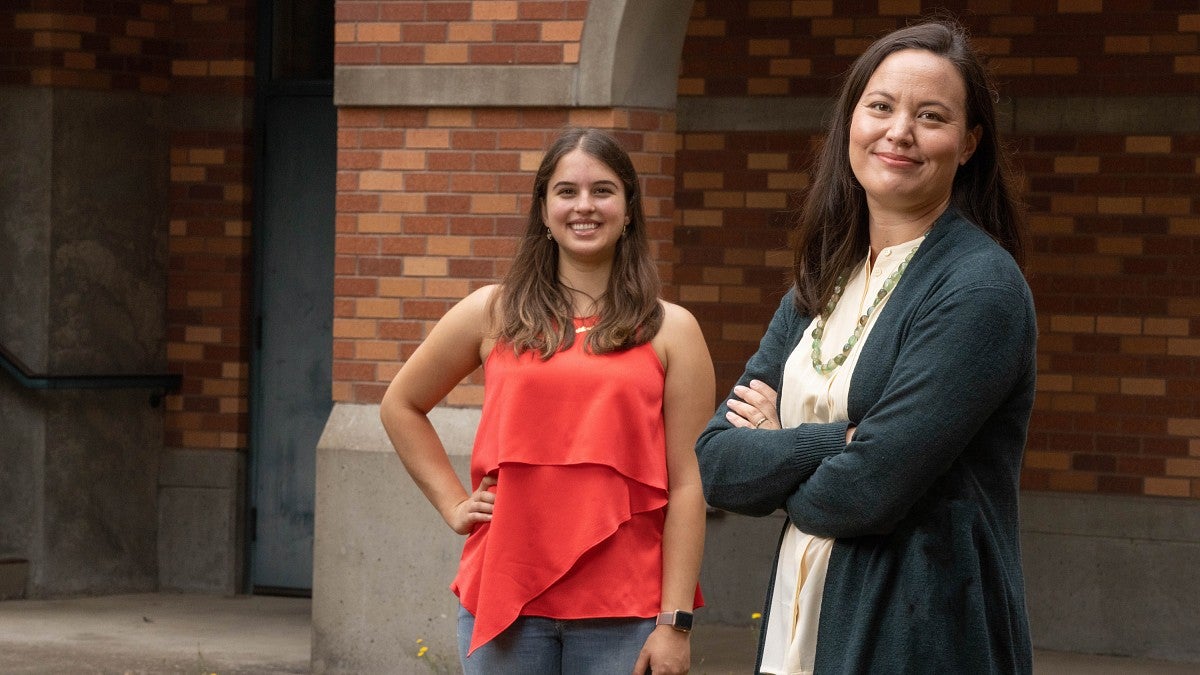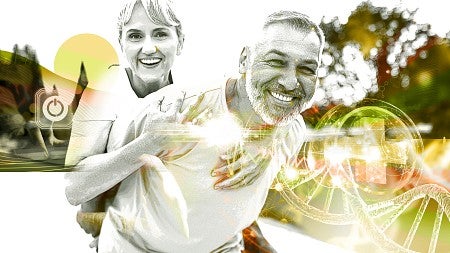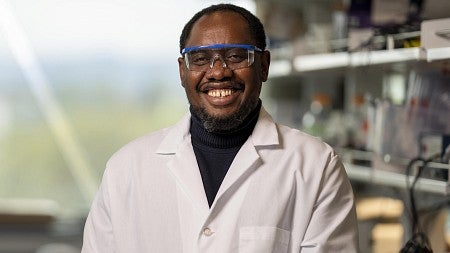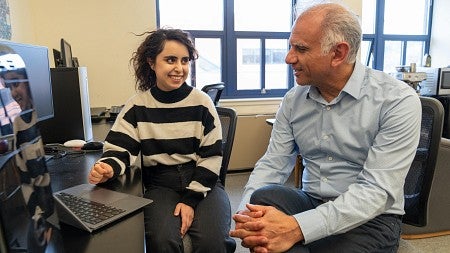
Diana Libuda and Alina Salagean
Professor and protégé find research is in their DNA
By Emily Halnon • Photos by Charlie Litchfield • October 7, 2020
3 min read
Alina Salagean knew she wanted to study reproductive biology at the University of Oregon—and for a powerful reason. Her parents emigrated from formerly communist Romania, where her mother could not access the medical services necessary to become pregnant; it was not until the couple reached the United States in 1997 that she was able to find the care she needed to conceive Alina. Her family’s fertility challenges drove Alina’s determination to study reproductive biology at the UO.
But the Clark Honors College student wasn’t sure what to do with that drive until she met Diana Libuda, an assistant professor of biology who specializes in DNA repair and recombination in developing sperm and eggs. Salagean discovered a fascination for research while working in Libuda’s lab—and quickly became one of the most promising undergraduate researchers Libuda ever mentored.
Salagean, who has worked in the Libuda lab since 2018, displayed “an incredibly high-level ability to think about science and conduct research—a level I didn’t know was possible for an undergraduate,” says Libuda. “And her fascination for biology just keeps growing exponentially.”
Forty hours a week and wanting more
Salagean studies DNA damage repair, a corrective process that occurs in sperm and eggs to avoid issues such as infertility, birth defects, and cancer. Among her contributions to the lab: research examining which biological mechanisms and interactions can preserve the genetic integrity that avoids DNA damage.
It was at the conclusion of her fellowship through the Summer Program for Undergraduate Research last year that Salagean realized she wants to make a career out of reproductive biology research.
“I’d been spending 40 hours a week in the lab all summer,” she says—“and I didn’t want it to be over!”
Like teacher, like student
Libuda credits her own undergraduate research experiences at UCLA and the Salk Institute for Biological Studies in San Diego with helping her realize she wanted to pursue a career in DNA research. She recalls a professor telling her, “you could be sitting in my chair”—and her eyes opening to a career she’d never considered.
She chose the UO over other institutions for the opportunity to mentor undergraduate students in a public university setting and empower them to have their own eye-opening, life-changing moments.
Fear no failure
Salagean has learned to embrace failure as a learning opportunity.
She even dressed up as a failed experiment for a lab Halloween party—she went as “dead mutant worms” to represent a genetic experiment she was struggling to understand.
That resilience is one of Salagean’s most promising qualities, says Libuda, and it will empower her to continue making exciting advances—and productive failures—in reproductive biology.
“I always leave the lab wanting to ask more questions!” Salagean says. “I’ve realized that the more you learn, the more you realize just how much you don’t know. And that’s so exciting.




